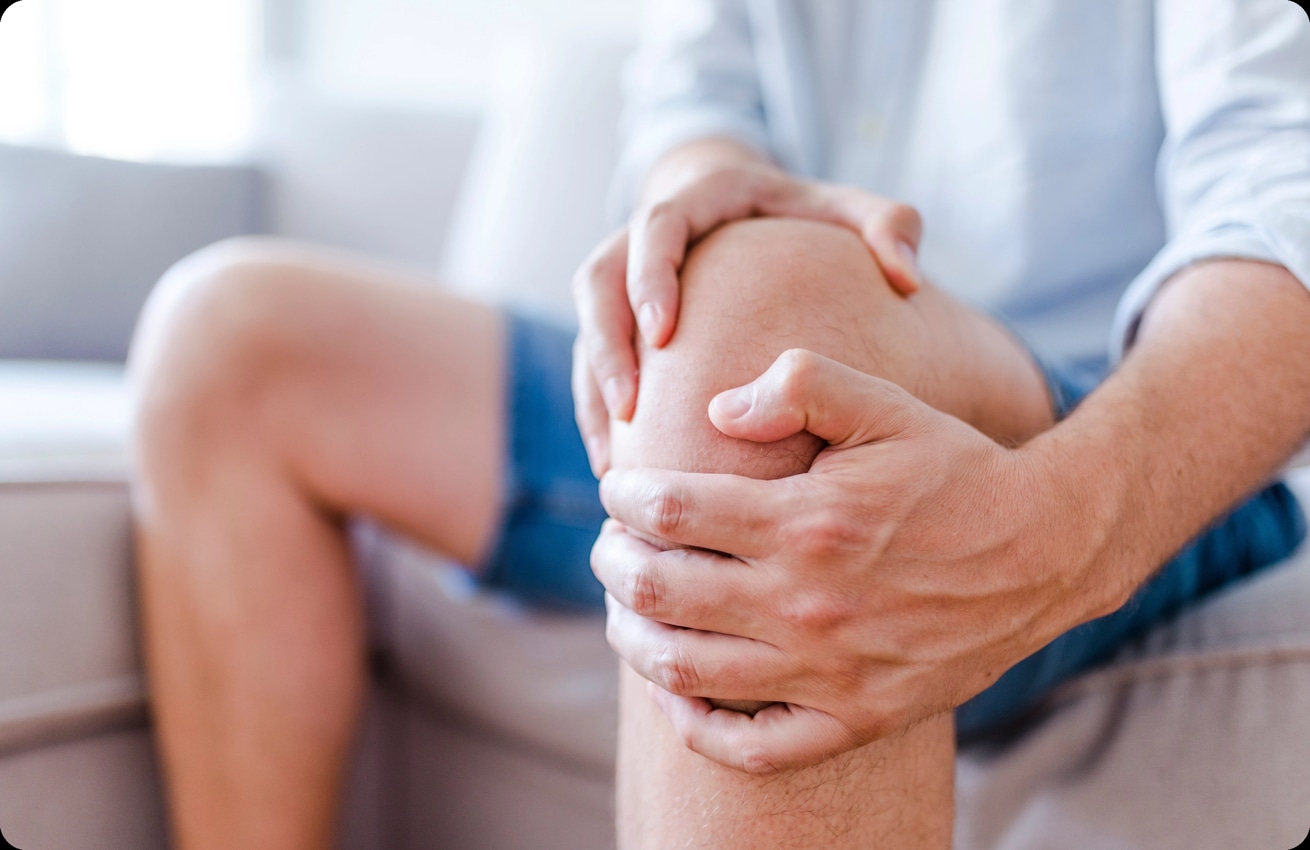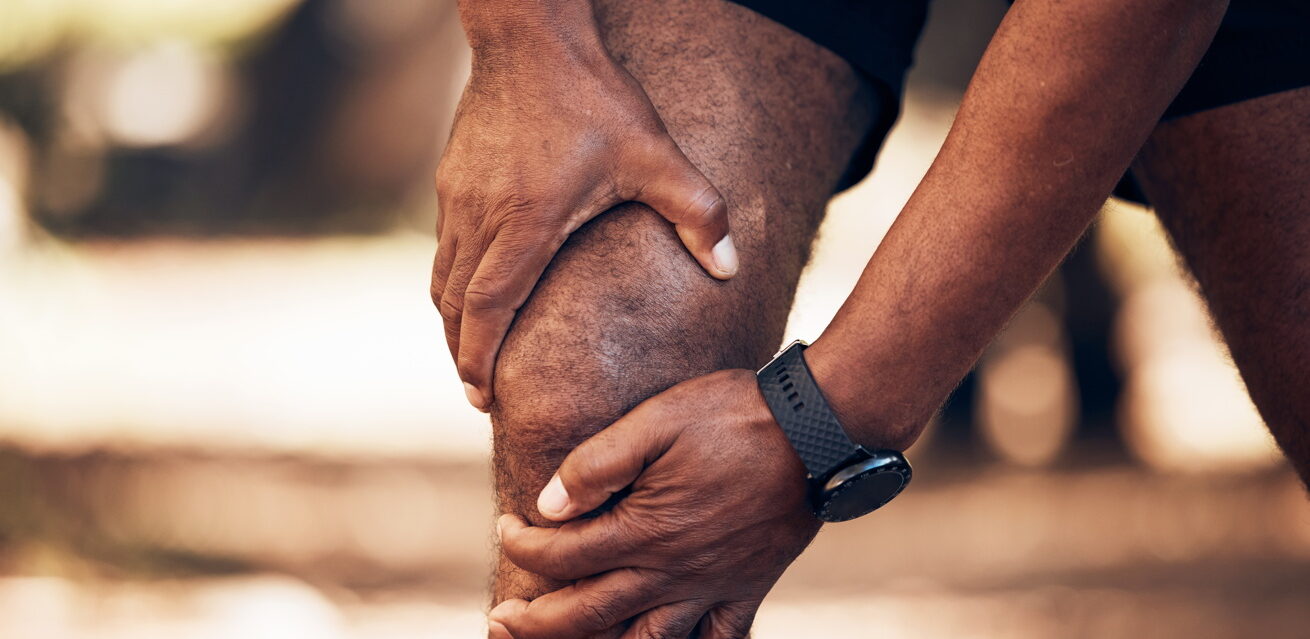Diagnosis and Treatment of Patellar Tendinitis in Wake County

What is Patellar Tendinitis?
Patellar tendinitis, also called jumper’s knee, occurs when repetitive force is put on your patellar tendon. The patellar tendon connects your shin to your kneecap and helps you perform actions such as kicking, jumping, and running. This condition causes pain if left untreated and is most often seen in athletes who perform sports or activities that cause repeated strain to their patellar tendon, resulting in swelling and irritation.

What Causes Patellar Tendinitis?
Overuse is typically the cause of patellar tendinitis. The condition often arises when athletes perform activities such as frequent jumping on hard surfaces. This strains the patellar tendon, which can lead to patellar tendinitis.
Patellar Tendinitis Risk Factors
Risk factors for patellar tendinitis include participation in any sport that requires a high amount of jumping or running on hard surfaces. Sports that may lead to the development of this condition include football, soccer, basketball, track and field, and dance. Other risk factors for developing patellar tendinitis include:
- Wearing improper footwear
- Overtraining
- Having an imbalance of strength in your legs
- Tense or tight leg muscles
- Neglecting proper stretching
- Being over 40, since this injury occurs over time
Symptoms of Patellar Tendinitis
Symptoms of patellar tendinitis include pain or swelling and tenderness at the site of your patellar tendon. You may experience the pain only after performing certain actions like playing sports or performing squats. As the injury gets worse, the pain and swelling will become more persistent.
How is Patellar Tendinitis Diagnosed?
Your doctor will perform a physical examination of the knee after reviewing your medical history and discussing your symptoms and activity level. Imaging is not as useful for detecting minor damage to the patellar tendon; however, you may need to get an X-ray to rule out other potential issues. If your pain worsens, your doctor may order additional imaging tests such as an MRI in order to get a better picture of your patellar tendon.

Treatment Options for Patellar Tendinitis at Raleigh Orthopaedic
Treatment for patellar tendinitis is most often nonsurgical in nature. Your doctor will likely prescribe rest (especially from activities that require you to run or jump), icing, and even physical therapy to address any muscular imbalances that could be contributing to your issue. Your doctor may also recommend over-the-counter drugs to help reduce pain and swelling.
In rare cases, if a scan shows a significant partial or full tear of the patellar tendon, surgery may be required to repair the tear. Your doctor may recommend a procedure called surgical debridement to address the issue. Surgical procedures for patellar tendinitis are normally performed arthroscopically, using small incisions around the knee.

Patellar Tendinitis Recovery Time
Recovery from a mild case of patellar tendinitis may take only a few weeks. If your injury is more severe, especially if a significant tear is present and you need arthroscopic surgery to make the repair, you may be looking at a much longer recovery time of 6 to 8 months or more. Even if you do not have a tear that requires surgery, some people may still suffer significant pain and require more time to recover.
How Can I Prevent Patellar Tendinitis?
Prevention of patellar tendinitis is not possible in all cases, but there are a few things you can do to increase your chances of staying healthy:
- Always wear proper footwear for the sport or activity you are participating in
- Ensure that your muscles are even and strong enough to support your movements. Address any muscle imbalances or weaknesses with physical therapy
- Avoid participating in activities that require repetitive jumping or running on hard surfaces (if you do participate in these types of activities, be mindful of adding proper rest into your routine and avoiding overtraining)
- Be sure to warm up and stretch prior to participating in any sport or athletic endeavor
- If you do experience patellar tendon pain, do not continue with your activities as usual and do not try to push through the pain

Expert Knee Care at Raleigh Orthopaedic
At Raleigh Orthopaedic, we specialize in the treatment of the knee. For over 100 years, we have served patients in Wake County. Our mission is to provide the highest level of care and compassion. Visit any of our clinic locations for comprehensive orthopedic care: Raleigh, Wakefield, Cary, Garner, Holly Springs, and West Cary-Panther Creek. To schedule an appointment with one of our orthopedic specialists, please give us a call or book an appointment online today.














